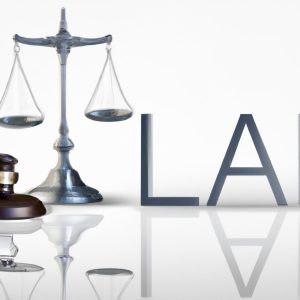Introduction
When appointed as an executor of an estate in New York, one of the crucial responsibilities is managing and distributing the deceased person’s assets, which may include selling a house. The process of selling a house as an executor involves various steps and considerations, and it’s essential to understand the timeline to ensure a smooth and efficient transaction. In this blog, Morgan Legal Group PLLP, a reputable law firm in New York City, will provide a comprehensive guide on how long an executor has to sell a house in New York. We will explore the probate process, the responsibilities of an executor, factors affecting the sale timeline, and how experienced lawyers can assist in selling the property efficiently.
The Probate Process in New York
Before delving into the timeline for selling a house, it’s crucial to understand the probate process in New York. Probate is the legal process through which a deceased person’s estate is administered and distributed. The primary steps involved in the probate process include:
1. Initiating Probate
The probate process begins with filing the deceased person’s will (if there is one) and the necessary paperwork with the Surrogate’s Court in the county where the deceased person resided. If there is no will, the court will appoint an administrator to handle the estate.
2. Appointing an Executor or Administrator
If the deceased person had a valid will, the court will appoint an executor named in the will to manage the estate’s affairs. If there is no will, the court will appoint an administrator.
3. Identifying Assets and Debts
The executor or administrator is responsible for identifying all of the deceased person’s assets and debts. This includes the house, bank accounts, investments, personal belongings, and any outstanding debts.
4. Valuation of Assets
The assets of the estate, including the house, must be appraised and valued to determine their worth.
5. Paying Debts and Taxes
Before any distribution of assets, the executor or administrator must settle the estate’s debts, including outstanding bills, taxes, and other financial obligations.
6. Distribution of Assets
Once all debts and taxes have been paid, the remaining assets can be distributed to the beneficiaries named in the will or according to New York intestacy laws if there is no will.
Executor’s Responsibilities in Selling a House
As an executor, selling a house is just one of the many responsibilities you will have during the probate process. The specific tasks involved in selling a house as an executor include:
1. Securing the Property
The executor must ensure that the property is secure and maintained throughout the probate process.
2. Obtaining a Grant of Probate
If a will is involved, the executor must obtain a Grant of Probate from the Surrogate’s Court before they can legally sell the house.
3. Getting the House Appraised
The executor must have the house appraised to determine its fair market value.
4. Listing the House for Sale
Once the house has been appraised, the executor can list it for sale on the market.
5. Negotiating the Sale
The executor is responsible for negotiating the sale of the house with potential buyers.
6. Handling the Closing Process
The executor must oversee the closing process, including the transfer of ownership to the buyer and the distribution of proceeds to the estate.
Factors Affecting the Timeline to Sell a House
The timeline to sell a house as an executor can vary based on several factors, including:
1. Market Conditions
The state of the real estate market can impact how quickly the house sells.
2. Property Condition
The condition of the house can affect its desirability and how long it takes to find a buyer.
3. Title Issues
If there are any title issues with the property, such as liens or encumbrances, it may delay the sale.
4. Beneficiary Approval
If there are multiple beneficiaries, their approval may be required before selling the house.
5. Probate Process Length
The overall length of the probate process can also influence the timeline for selling the house.
How Long Does an Executor Have to Sell a House in New York?
There is no set timeline for an executor to sell a house in New York. The length of time it takes to sell a house as an executor can vary widely depending on the factors mentioned above. On average, the probate process in New York can take between six months to two years or even longer for more complex estates.
How an Experienced Lawyer Can Help
Navigating the probate process and selling a house as an executor can be complex and time-consuming. Having the guidance of an experienced probate and real estate lawyer can significantly streamline the process and ensure that everything is done correctly and efficiently. An experienced lawyer can:
1. Provide Legal Expertise
An experienced lawyer can guide you through the legal requirements of probate and the sale of the house.
2. Handle the Paperwork
Probate involves extensive paperwork, and a lawyer can help ensure that all documents are properly prepared and filed.
3. Expedite the Process
A skilled lawyer can expedite the probate process and help sell the house more efficiently.
4. Protect Your Interests
An attorney can protect your interests as an executor and ensure that you fulfill your responsibilities properly.
Conclusion
As an executor, selling a house is a significant responsibility, and the timeline to complete the process can vary depending on various factors. While there is no set timeframe for an executor to sell a house in New York, it’s essential to act diligently and seek the guidance of an experienced probate and real estate lawyer. Morgan Legal Group PLLP is a trusted law firm located in New York City, providing expert legal assistance to executors in selling houses during the probate process. If you are an executor with a house to sell, don’t hesitate to contact us for professional guidance and support throughout the process. Our team of experienced lawyers is ready to help you navigate the complexities of the probate process and ensure a smooth and efficient sale of the property.












